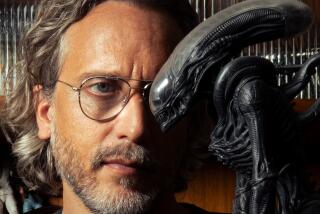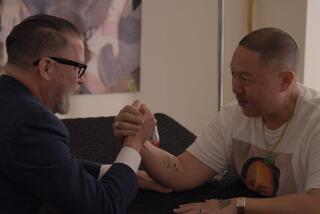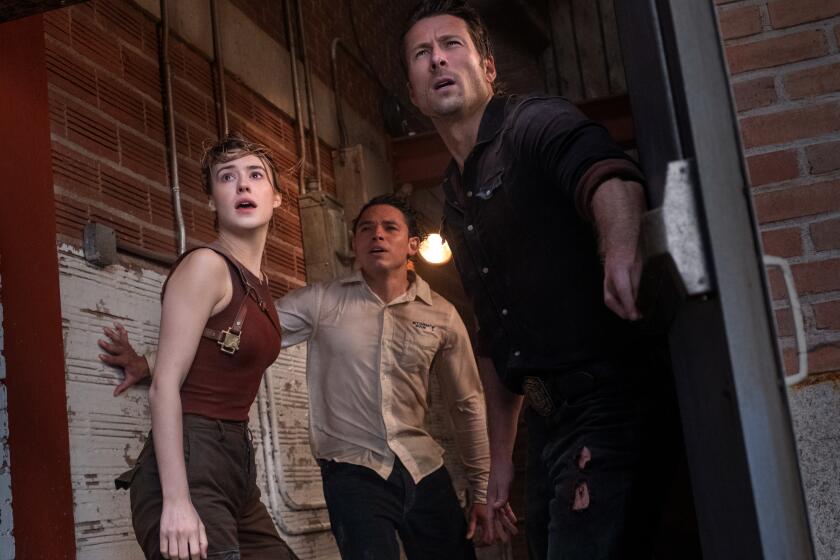Clint Eastwood DVD collection from Warners
Clint Eastwood, who turns 80 in May, has been racking up lifetime achievement awards since the ‘90s -- before he had even embarked on the late phase of his career that many consider his creative prime.
To mark the 35th anniversary of his relationship with Warner Bros., the studio on Tuesday is issuing a massive boxed set, “Clint Eastwood: 35 Films 35 Years at Warner Bros.” (retailing for $179.98). Thirty-four of the films feature Eastwood as actor, director or both, and four date from before 1975, when he set up his production company, Malpaso, on the Warners lot. The 35th is a documentary, “The Eastwood Factor,” by critic Richard Schickel, who also contributes the booklet essay.
The set serves as a reminder, if we needed another one, that Eastwood’s is a complex and even contradictory body of work -- one whose scope no one could have foreseen when he decided to step behind the camera at age 41.
There are a multitude of recurring motifs to pick out in a career defined not just by longevity but extraordinary productivity. There are cop movies, westerns, orangutan comedies. There are films about the mystique of brooding loners and about the formation of communities. Looming large throughout is the shadow of American history: the Civil War, World War II, the Korean War, the Cold War and the Vietnam War.
But seen in the long view, the most striking aspect of Eastwood’s work is its capacity for evolution: philosophies and personas are being continually refined and revised. The progression of his westerns is a subject unto itself: his early stint on TV’s “Rawhide”; “The Outlaw Josey Wales” (1976), the first film he directed for Warner Bros. and still one of his best; the Oscar-winning “Unforgiven” (1992), an elegy to the very idea of a western; “Mystic River” (2003), which transposes the theme of frontier justice to a modern, urban context.
One could chart too the development of the Harry Callahan character from Don Siegel’s “Dirty Harry” (1971) to “Sudden Impact” (1983), the fourth and most interesting in the series (the only one Eastwood directed), in which Harry confronts a younger, female version of himself. And if the first half of his directing career took at face value the macho persona of Eastwood the actor, many films in the second half (from 1990’s “White Hunter, Black Heart” to 2008’s “Gran Torino”) could be read as critiques of tough-guy masculinity.
Eastwood’s enshrinement as one of the leading American auteurs of our time is by now so complete that it is easy to forget that this is a relatively recent development. Pauline Kael’s attack on “Dirty Harry” as a “fascist masterpiece” and her steadfast antipathy toward Eastwood helped make him a longtime object of critical derision or indifference.
As if to compensate for the belated acknowledgment, he recently has come to be regarded as a national treasure, with three best-picture Oscar nominations since 2003 (for “Mystic River,” “Million Dollar Baby” and “Letters From Iwo Jima”). But even with near-universal acclaim, Eastwood can still have a hard time getting his less commercial projects off the ground.
Warner Bros. initially passed on “Mystic River” and “Million Dollar Baby,” and Eastwood has strayed occasionally from the partnership: “Flags of Our Fathers” and “Changeling” (two of his lesser recent efforts, as it happens) were made for other studios (and are missing from this set).
Approaching his ninth decade, Eastwood continues to work, and perhaps even to evolve. The most flattering thing about this retrospective in a box, which stops short of “Invictus” and the upcoming “Hereafter,” is that it is already out of date.
More to Read
Only good movies
Get the Indie Focus newsletter, Mark Olsen's weekly guide to the world of cinema.
You may occasionally receive promotional content from the Los Angeles Times.







